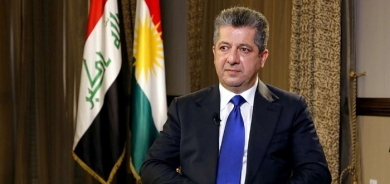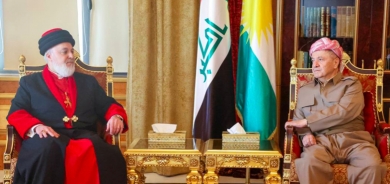U.S. Should Respect Kurdistan’s Decision about Iraq’s Future

The risks of staying committed to a unified Iraq are obvious and growing. At the most basic level, the concept of a unified country may already be a fiction. The Kurdish region’s extensive autonomy had greatly constrained the Baghdad government’s authority in that part of Iraq for well over a decade. The KRG has long been the effective government there, with its own defense forces, flag, currency, and economic policies. Now, the rapid territorial gains of Sunni Arab insurgent forces led by ISIS and its allies have shrunk Baghdad’s geographic power even more, since the national government no longer controls the majority Sunni provinces of northwestern and western Iraq.
Troops loyal to Prime Minister Nouri al Maliki’s regime may be able, along with Shiite militias, to block the ISIS offensive in predominantly Shiite areas south and east of the capital. But without extensive U.S. or Iranian assistance, prospects of retaking the recently captured lands are not good. A new Sunni Arab political entity has arisen in conquered portions of Iraq and Syria, whether or not the international community chooses officially to recognize that development. At this point, it would be understandable if Iraqi Kurdistan decided to exit a collapsing Iraqi state by declaring independence. Taking control of the majority Kurdish (and oil rich) city of Kirkuk was a prudent interim move by the KRG, even in the unlikely event that some semblance of Iraqi unity is restored temporarily. The alternative was to watch Kirkuk fall into the hands of ISIS fighters.
But while independence would be a rational option for Kurdistan, it is not without its perils. Both Iran and Turkey may not react well to the emergence of a fully independent Kurdish state. Ankara’s opposition to such a development may not be as shrill as it once was, since Turkey’s economic ties with Iraqi Kurdistan have been growing for years. And, given Turkish fears about the mounting chaos in the rest of Iraq, an independent Kurdistan may now seem to Turkish leaders to be the lesser evil. Still, there is no assurance that Ankara would not respond in a shortsighted, confrontational fashion to a formal declaration of independence by Erbil.
The Kurdish people and the KRG need to carefully consider the options, and neither Kerry nor other U.S. officials should inject themselves into that decision-making process. Washington’s own record in recent decades about similar situations shows a bizarre inconsistency. U.S. leaders seemed willing to welcome the breakup of the Soviet Union and accepted the fracturing of Yugoslavia. Yet American policymakers insisted that the inherently unstable (and newly minted) state of Bosnia-Herzegovina remain intact, even though a majority of its Serbian and Croatian citizens wished to secede. Washington refused to countenance Somaliland’s secession from utterly dysfunctional Somalia, but fully embraced South Sudan’s secession from Sudan.
Given that track record, it is clear that Washington does not have a coherent strategy for dealing with the breakup of political states. Since that is the case, the Obama administration should stand back and not try to dictate the future of Iraqi Kurdistan. Insisting on preserving the (now largely fictional) unity of Iraq is not an essential American interest. The Kurdish people and government are likely to remain friendly to the United States regardless of the political path they choose. Washington should exercise restraint and let them make that difficult decision without interference.
Ted Galen Carpenter, a senior fellow at the Cato Institute and a member of the editorial board at Mediterranean Quarterly, is the author of nine books and more than 550 articles and policy studies on international affairs.

 Ted Galen Carpenter
Ted Galen Carpenter






